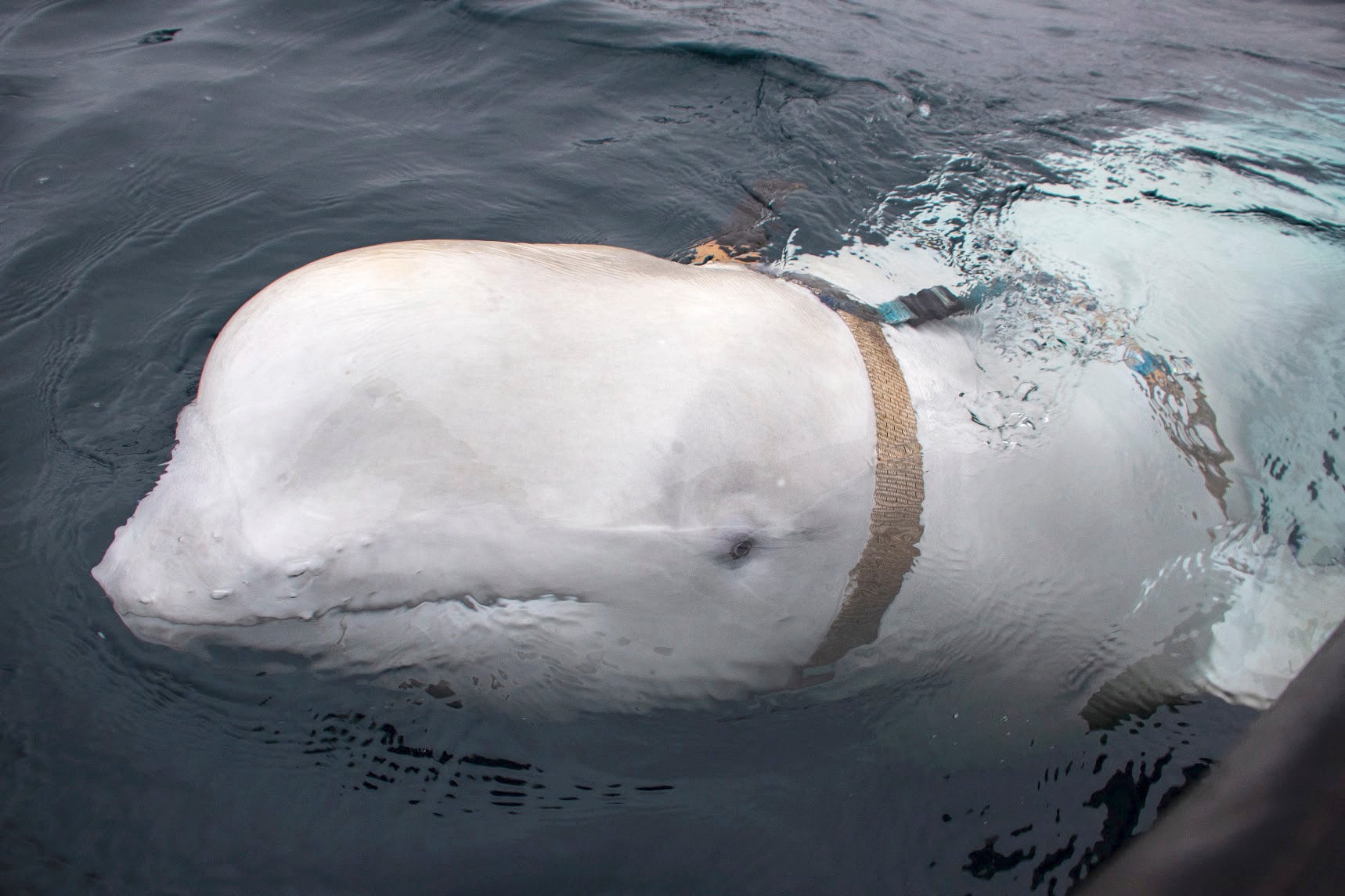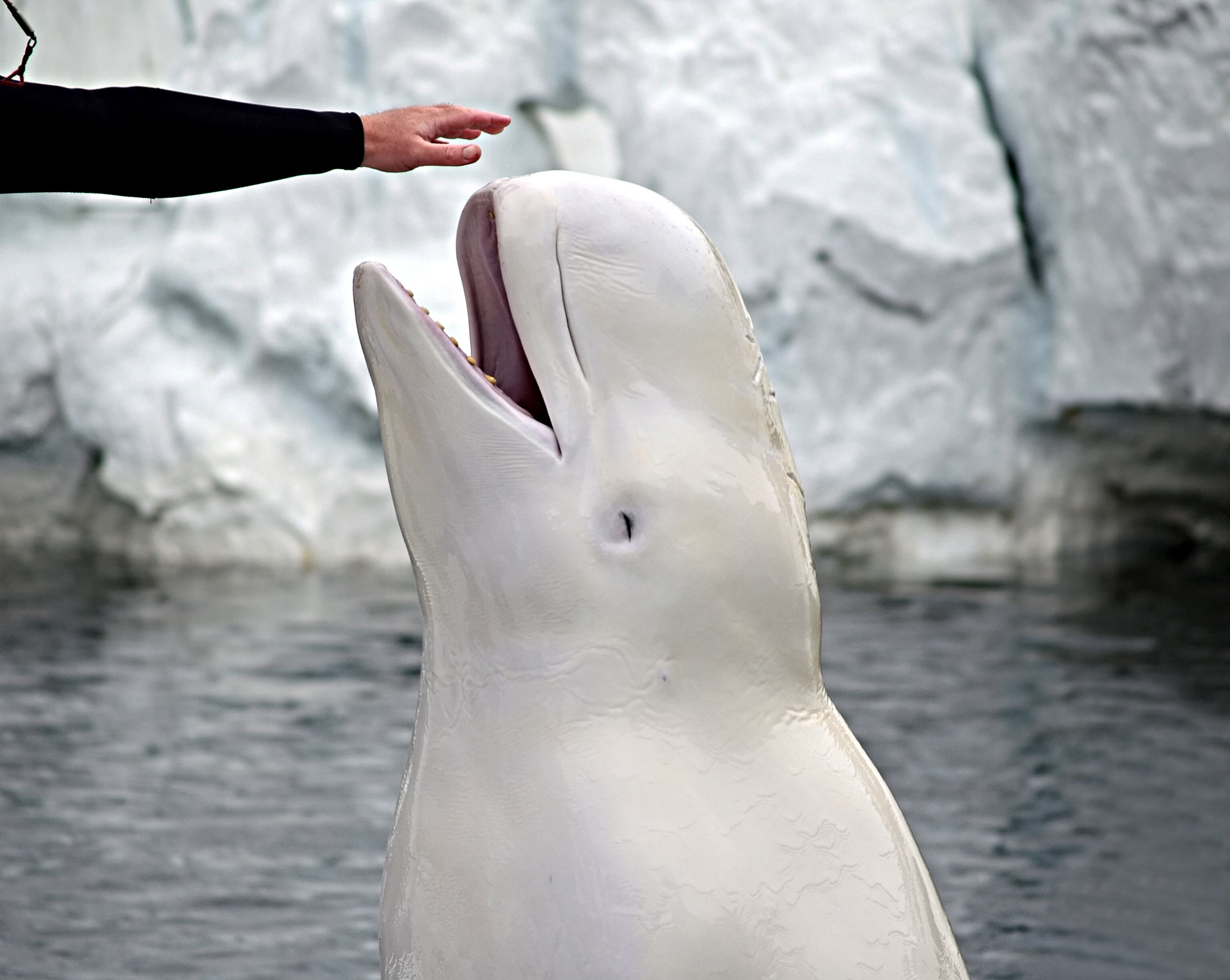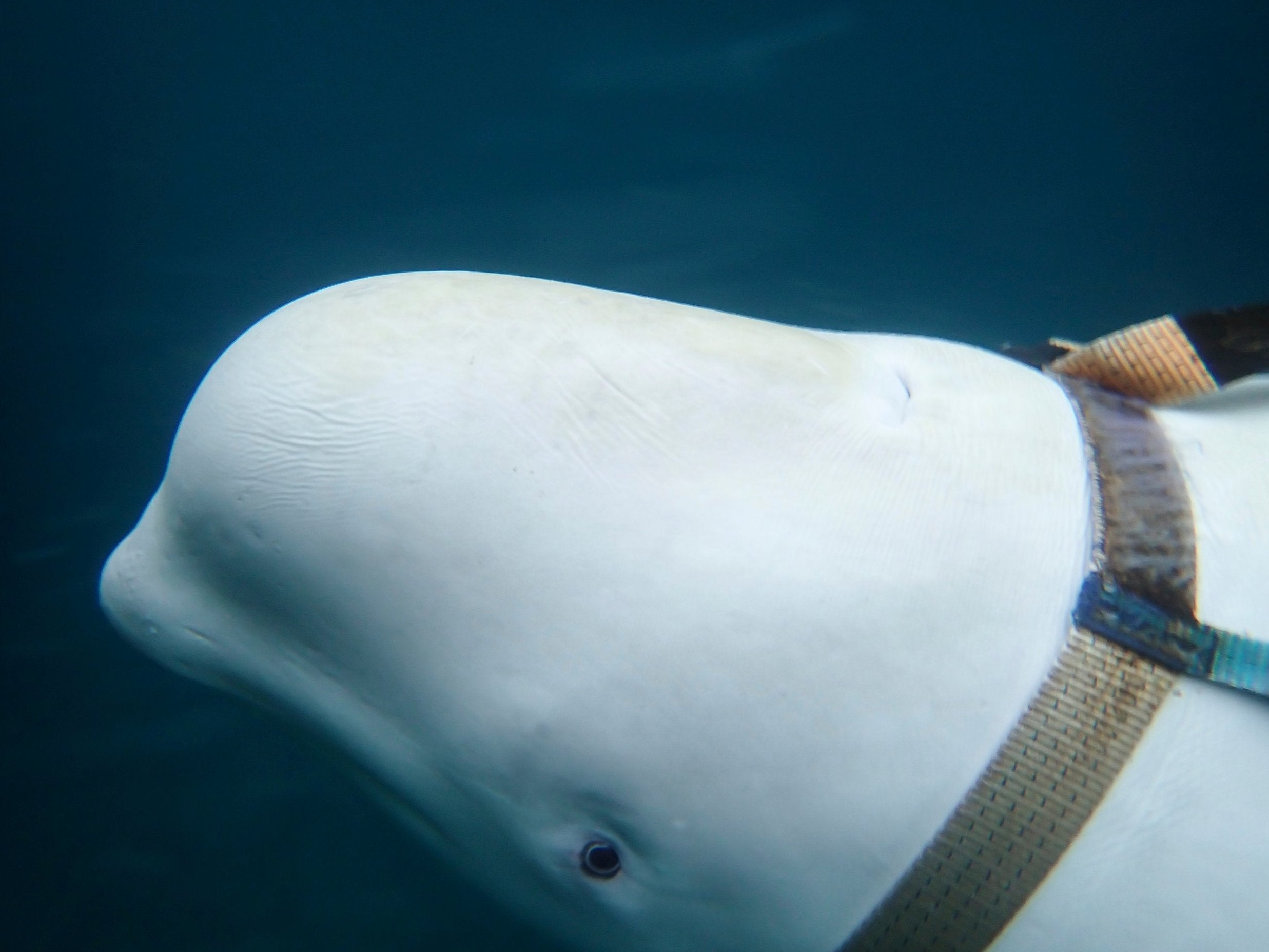Mysterious Russian ‘spy whale’ may have fled military training, marine expert says
Beluga whale nicknamed Hvaldimir was allegedly moved from a facility owned by a dolphinarium in St Petersburg to an Arctic military programme
Five years ago, the story of an unusual breed of alleged Kremlin asset captured the attention of the world.
Surfacing in the icy waters of the Arctic circle, a lone beluga whale was found off the coast of Norway in April 2019 with a harness and camera mount attached to his body, featuring a label reading: “Equipment of Saint Petersburg.”
The discovery of the whale – which was later filmed returning lost iPhones and “playing catch” with a group of South African rugby fans – set off a wave of speculation that the marine mammal could in fact be a Russian spy.

Seemingly unable to catch fish for itself, and unusually tame, while appearing to have been conditioned by humans, Norwegian authorities decided to monitor and feed the whale.
An expert in the species has now said she believes the whale – nicknamed “Hvaldimir” by locals, in a nod to the Russian president and the Norwegian for whale, hval – was indeed trained by the Russian military before escaping a naval base in the Arctic Circle.
But rather than a Russian spy, Dr Olga Shpak believes the whale was actually trained to guard the naval base before opting to flee once released into open water due to its “hooligan” mindset.
Dr Shpak, whose account is based on conversations with friends and former colleagues in Russia, where she researched marine mammals from the 1990s until 2022, has made the assertion in a new BBC documentary, Secrets of the Spy Whale, saying: “For me, it’s 100 per cent [certain].”
According to Dr Shpak, after Hvalimir’s viral emergence in 2019, the Russian marine mammal community immediately identified him as a whale first captured in 2013 in the Sea of Okhotsk.

“Through the chain of vets and trainers the message came back – that they were missing a beluga called Andruha,” said Dr Shpak. In 2014, the whale was allegedly moved from a facility owned by a dolphinarium in St Petersburg to an Arctic military programme, where his trainers and vets remained in contact.
“I believe that when they started to work in open water, trusting this animal, the animal just gave up on them,” said Dr Shpak.
“What I’ve heard from the guys at the commercial dolphinarium who used to have him was that Andruha was smart, so a good choice to be trained. But at the same time, he was kind of like a hooligan – an active beluga – so they were not surprised that he gave up on [following] the boat and went where he wanted to.”
According to the BBC, satellite images could show Hvaldimir’s former home at a naval base in Murmansk, with what appear to be pens holding white wales.
“The location of the beluga whales very close to the submarines and the surface vessels might tell us that they are actually part of a guarding system,” Thomas Nilsen, of Norwegian outlet The Barents Observer, told the broadcaster.

Belugas in the past have been used to guard naval bases, help divers, and find lost equipment, according to biologists. The whales were reportedly trained by the Soviets during the Cold War to sniff out mines and torpedoes.
Both the United States and Russia are known to have had military training programmes for aquatic mammals, such as dolphins and whales, who have at times been trained to detect sea mines and recover inert torpedoes.
In April 2019, a Russian military spokesperson denied that Hvaldimir was connected to a training programme but acknowledged that dolphins are sometimes used for military roles.
A retired Russian colonel, Viktor Baranets, was somewhat more blunt, saying at the time: “If we were using this animal for spying, do you really think we’d attach a mobile phone number with the message ‘Please call this number’?”
The Crimean port city of Sevastopol has housed a military training centre for dolphins since 1965, which fell into disrepair after the collapse of the Soviet Union but was reporteldy revived by Ukraine in 2012 before falling into Russian control after Moscow illegally annexed the peninsula.
A source told state news agency RIA Novosti in 2014 that new training programmes were being planned to train dolphins to serve the Russian military, it was previously reported.
Join our commenting forum
Join thought-provoking conversations, follow other Independent readers and see their replies
Comments
Bookmark popover
Removed from bookmarks